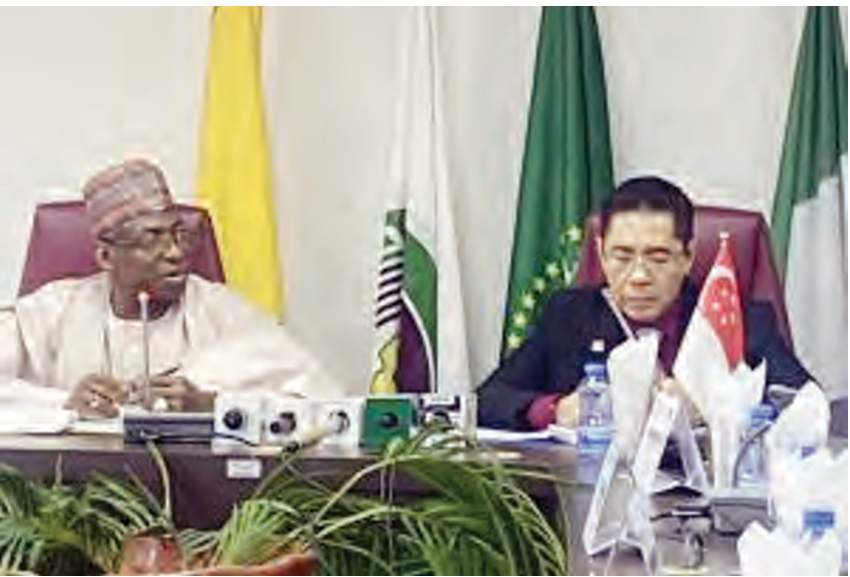 President Tinubu
President TinubuWhile cabinet reshuffles are a time-honoured strategy for maintaining leadership balance, addressing underperformance, and appraising metrics, they can also consolidate power. However, missteps can have far-reaching consequences, including the loss of valuable expertise, the disruption of ongoing projects, demotivation of performers, and, ultimately, a tarnished government image and credibility.
The long-awaited cabinet reshuffle by President Bola Ahmed Tinubu has finally arrived, resulting in the dismissal of five ministers, the appointment of seven newer ones, and the redeployment of ten.
While cabinet reshuffles are a time-honoured strategy for maintaining leadership balance, addressing underperformance, and appraising metrics, they can also consolidate power. However, missteps can have far-reaching consequences, including the loss of valuable expertise, the disruption of ongoing projects, demotivation of performers, and, ultimately, a tarnished government image and credibility.
Considering Nigeria’s complex political landscape, it’s understandable that some underperforming ministers in President Tinubu’s “Renewed Hope” administration were spared, but it is quite unfortunate that some ministers who are considered as loyal, politically relevant, and technically competent were also discarded.
Take, for instance, Abdullahi Tijjani Gwarzo. In Nigeria, a minister of state typically supports a principal minister by overseeing specific departments, agencies, or projects within the ministry. They also coordinate with key stakeholders, representing the principal minister in various capacities. Despite this, I am still struggling to find any failure on Gwarzo’s part that would justify his dismissal. I feel very passionate about this because he is one of the few good technocrats from my home state of Kano, who many of us looked up to the difference he was about making in governance. I am also deeply pained because he is from my part of the state.
AT Gwarzo happens to be a distinguished gentleman and grassroots politician, who rose from being a local government chairman to deputy governor, state party chairman, and, eventually, minister. His vast experience and exemplary performance in his ministerial role are indisputable.
Since his appointment as Minister of State for Housing and Urban Development on 21 August, 2023, Gwarzo has worked tirelessly to align his mandate with President Tinubu’s Renewed Hope Agenda. Alongside Minister Ahmed Musa Dangiwa, he developed a roadmap to revitalise the housing and urban development sector. This led to the formation of four reform task teams within the reestablished Ministry of Housing and Urban Development.
Furthermore, Gwarzo and Dangiwa launched the Renewed Hope Cities and Estates programme, which has been initiated in thirteen states and the FCT, generating an average of 6,250 jobs per site.
Nigerians need credible journalism. Help us report it.
Support journalism driven by facts, created by Nigerians for Nigerians. Our thorough, researched reporting relies on the support of readers like you.
Help us maintain free and accessible news for all with a small donation.
Every contribution guarantees that we can keep delivering important stories —no paywalls, just quality journalism.
Gwarzo represented Nigeria at key international forums, including the UN Climate Change Conference (COP28) in Dubai and the African Urban Forum in Addis Ababa. He also led the country’s delegation to Madrid, Spain, where he negotiated a partnership to develop Nigeria’s Social Housing Programme.
He played a pivotal role at the Munich Housing Expo, where he presented Nigeria’s housing sector achievements and sought collaboration from international partners. Gwarzo also helped organise the 2024 Review of Compensation for Crops and Economic Trees, the first of its kind in sixteen years, advocating for an upward review of rates.
In addition to his ministerial duties, Gwarzo facilitated the enrollment of thousands of Kano State indigenes into the Presidential Conditional Grant Programme and helped distribute food palliatives efficiently through the Ministry of Agriculture and Food Security.
With such accomplishments, the question remains: where did AT Gwarzo fail?
Even if the move to replace him with another Kano representative was politically motivated, it’s hard to justify how Ogun State, with four ministers, has more representation than Kano, the North’s largest political base, which now has only two ministers. This discrepancy raises concerns of regional bias.
While some argue that Gwarzo’s removal may have been due to political dynamics in Kano North, this reasoning does not hold up when loyalty and performance are taken into account. Gwarzo’s contributions extend beyond Kano North; he represents the entire Kano State, the North West, and, by extension, Northern Nigeria.
Gwarzo has always been a staunch defender of President Tinubu’s interests, even to the detriment of his own political ambitions. It is well-documented that Senator Rabiu Musa Kwankwaso opposed Gwarzo’s senatorial aspirations because of his loyalty to Tinubu during the 2015 APC primaries.
In comparison to other ministers, such as Ibrahim Geidam, the retained Minister of Police Affairs, Gwarzo’s performance as a state minister has been exemplary. So, why was he removed? Some sources suggest that sectional arguments raised by the Deputy President of the Senate influenced Tinubu’s decision, but it is likely that Tinubu now realises the error in this move.
Gwarzo, affectionately known as “Ruwa Baba,” is a beloved figure in Kano State, where his grassroots presence is felt far and wide. His influence is not limited to a single senatorial district.
President Tinubu could have added Yusuf Ata to the cabinet without dismissing Abdullahi Gwarzo. Given Kano’s pivotal role in Tinubu’s emergence, the state deserves the same representation as Ogun. Recalling Gwarzo would be a strategic move.
There is precedent for leaders recalling valuable appointees. During World War II, Winston Churchill reappointed Lord Beaverbrook after realising the detrimental effects of his dismissal. Napoleon Bonaparte similarly reinstated Marshal Davout, and modern corporations like Apple, Google, and Microsoft have rehired key individuals for their expertise.
Such actions demonstrate the importance of recognising and correcting mistakes. President Tinubu should reconsider Gwarzo’s dismissal, not just for political correctness but to safeguard Kano’s support and ensure the continued success of his administration.
Adnan Mukhtar is a political commentator and university lecturer. He writes from Abuja.
Support PREMIUM TIMES' journalism of integrity and credibility
At Premium Times, we firmly believe in the importance of high-quality journalism. Recognizing that not everyone can afford costly news subscriptions, we are dedicated to delivering meticulously researched, fact-checked news that remains freely accessible to all.
Whether you turn to Premium Times for daily updates, in-depth investigations into pressing national issues, or entertaining trending stories, we value your readership.
It’s essential to acknowledge that news production incurs expenses, and we take pride in never placing our stories behind a prohibitive paywall.
Would you consider supporting us with a modest contribution on a monthly basis to help maintain our commitment to free, accessible news?
TEXT AD: Call Willie - +2348098788999

















 English (US) ·
English (US) ·